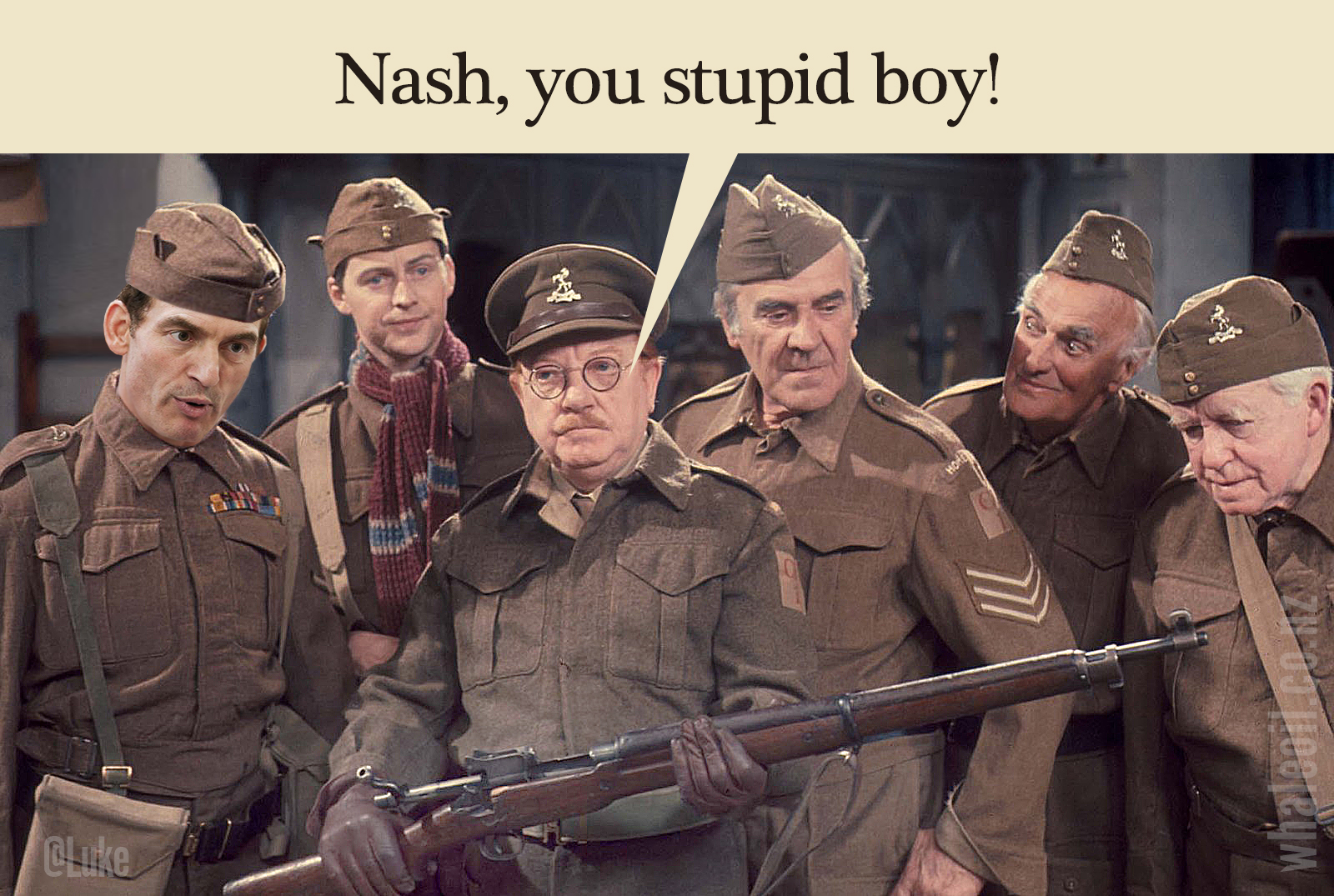Was the gun buy-back a success?
Unequivocally, no.
How do we know it wasn’t a success?
Because not a peep has been heard from politicians or Police about how they achieved stunning results through the buy-back.
Chris Geddis has his own thoughts on the buy-back in the Hawkes Bay Today:
Was the Gun Buyback really a success?
On December 20, 2019, the much-heralded amnesty and gun buyback scheme came to an end.
The scheme was launched when authorities banned semi-automatic weapons in response to the killing of 51 people at two mosques in Christchurch on March 15, 2019.
The scheme and six-month amnesty was put in place after gun law reforms (supported by all parties except ACT) banned most military-style semi-automatic (MSSA) firearms, weeks after the shootings.
In one report, NZ Police say that more than 56,000 weapons and another 190,000 parts were surrendered and handed in to authorities in New Zealand during the six-month amnesty.
The scheme, launched in April 2019 was that, in return for handing in of firearms, owners were compensated up to 95 per cent of the weapon’s original price.
Police hail it as a success. Now the amnesty is over, Police Minister Stuart Nash said:
“There had been a last-minute surge in the past fortnight as people had come forward to do the right thing and more than 56,346 prohibited and unlawful firearms have so far been removed from circulation, through the buyback and amnesty, as well as through modifications by approved gunsmiths at Government expense. 31,650 people participated in the buyback and deserve credit and acknowledgement. They have been paid almost $100 million in compensation. Almost 188,000 prohibited parts are no longer in the community.”
But of those “56,346 guns” we now find only 9532 handed in were actually MSSAs?
At the halfway stage of the amnesty collection, in September, Police Deputy Commissioner Mike Clement updated progress to a parliamentary select committee, by saying “12,621 people have handed in 19,837 firearms and 73,949 parts and $36.7 million has been paid out.” “But of the 14,000 or so MSSAs that are registered with police, 2500 have been handed in.“
From the figures, I do believe that of the 56,346 that were handed in, 46,814 firearms were not MSSAs, the majority were guns of the type more likely to be the regular .303 rifles, .22 rifles, various gauge shot guns and collection guns – hardly prohibited or unlawful.
Yup, shooters cashed-up old munters. They handed back guns that they no longer used or wanted and cleaned out some space in the safe for some new, essentially free guns paid for with what the community called “JacindaBucks“.
Is the country safer, which is what the politicians have claimed?
Well, no. It is no less dangerous than before the gun buyback. Nutters and criminals will still use firearms against the law, but the government only succeeded in a) destroying legitimate shooting sports, b) enabling shooters to refresh their guns and ultimately c) sending many thousands of firearms underground. Chris Geddis has realised this:
The amnesty and payout being taken advantage of by law abiding citizens, retired farmers, ex-hunters, ex duck-shooters and collectors who realised that the one-off price offered, would never be achieved, nor repeated again.
We now know that police can confirm they can account for 15,037 E-category or MSSAs as; 9532 have been handed in, 4277 firearms have been retained and have exemptions for various reasons and 1228 firearms are held by 851 people that police have contacted to follow up.
I know of one wag who was importing airsoft parts that look like parts for AR15s and cashing them in to ignorant and unsuspecting Police, and another who was putting old heavy barrel .22 barrels through his CNC machine and making them look like AR15 barrels. They reaped many thousands of dollars from the buyback, and those “parts” are included in the numbers touted by Police.
The fact is that Mike Clement cited estimates at the start that put the number of now-banned firearms between 56,000 and 173,000, while other police estimates were of 240,000, a figure not disputed by Clement, though he added that the true number was simply unknown.
The Police and Stuart Nash were warned about the pitfalls of their process. Stuart Nash especially was told by experts how to avoid this mess, but he stopped talking to those experts and instead he listened to the Police, who sold him and his career down the river.
They have achieved a spectacular failure and when they get around to answering OIA requests properly then they are going to have to admit their failure. Stuart Nash’s career will then be toast. The few friends he thought he had will vanish, and Jacinda Ardern will easily cast him aside.
Nash and Clements fronted this, Nash should resign and Clements should exit into retirement with a boot in the arse.

